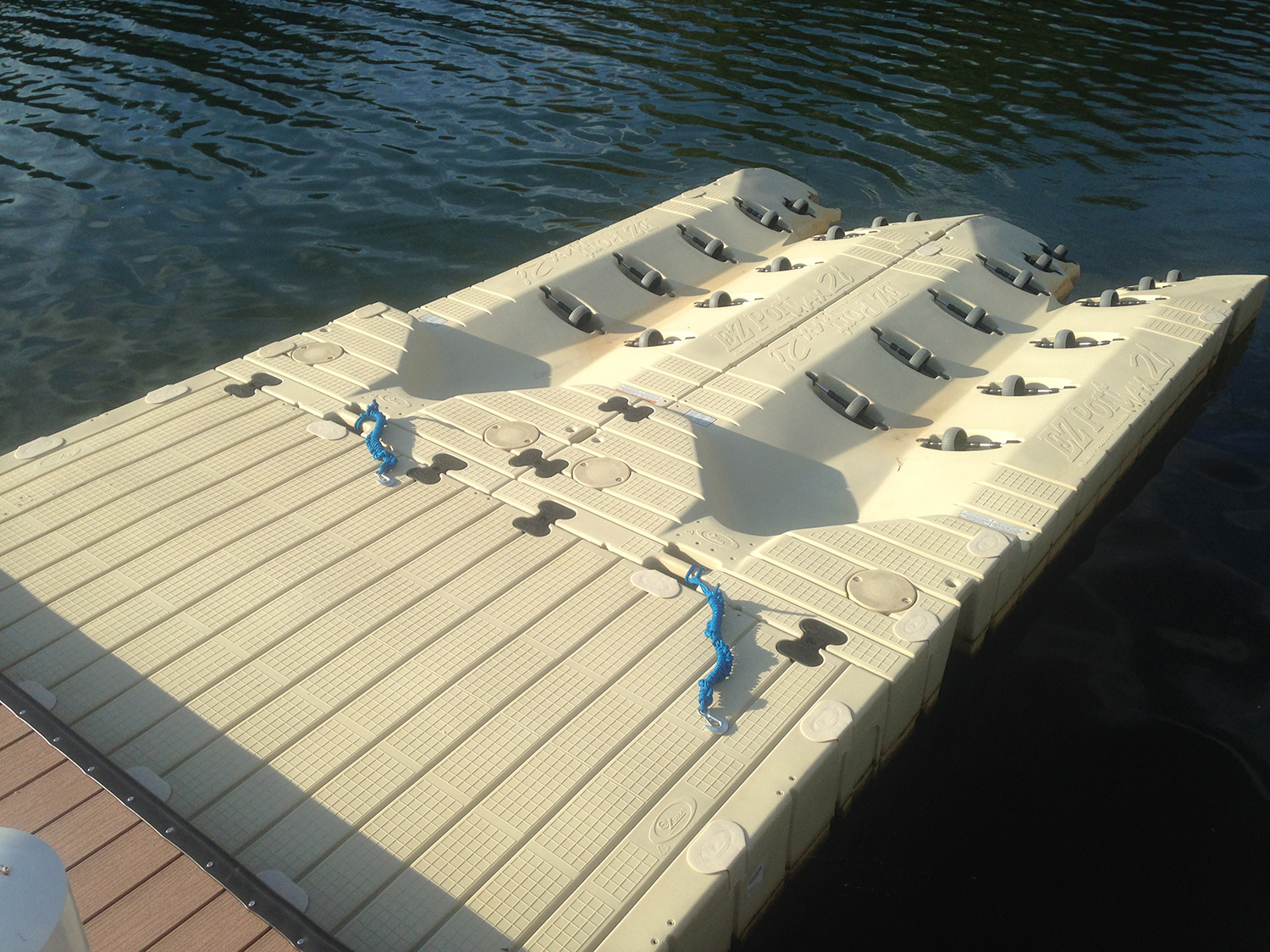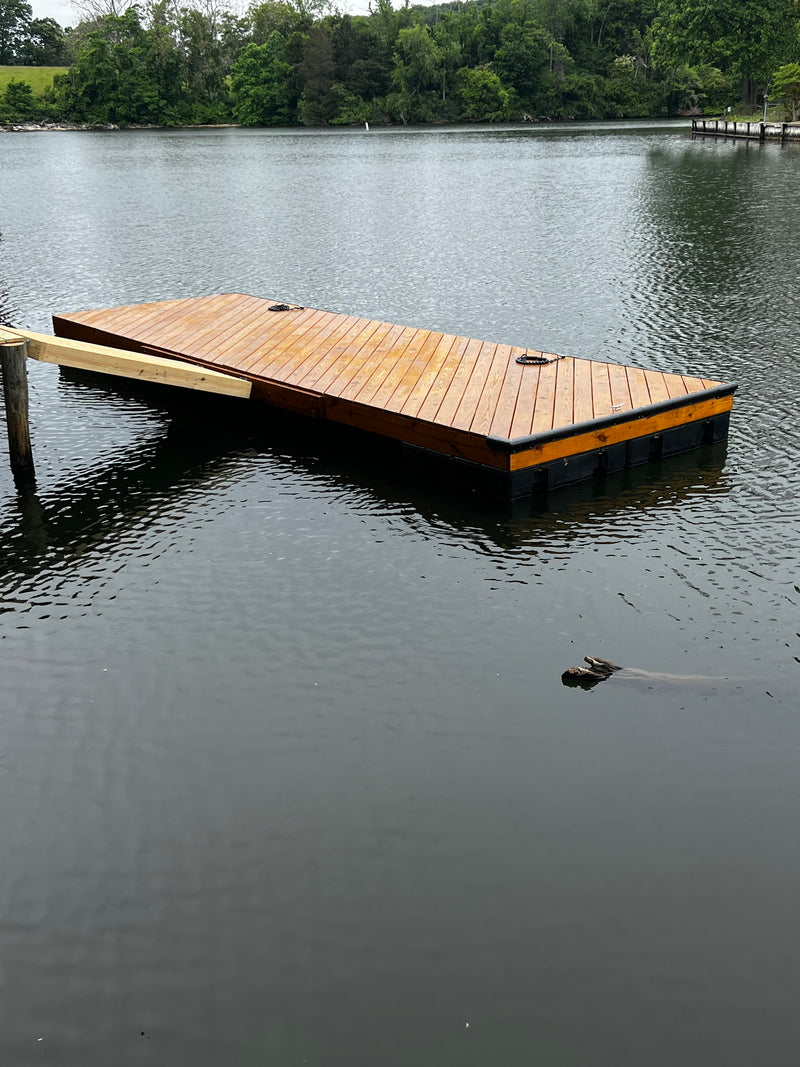Floating Docks: The Smart Option for Modern Waterside Living and Entertainment
Floating Docks: The Smart Option for Modern Waterside Living and Entertainment
Blog Article
Floating Docks: The Ideal Choice for Versatile Water Gain Access To
Floating docks existing a compelling remedy for a selection of water gain access to needs, offering adaptability that goes beyond traditional mooring choices. Their ability to adapt to rising and falling water levels while guaranteeing stability and safety and security makes them particularly helpful for both industrial and entertainment applications. Furthermore, the modular nature of floating docks facilitates modification, satisfying certain demands. The subtleties of installment and upkeep, together with the variety of applications, warrant a closer assessment to totally appreciate their potential advantages and ramifications for river access strategies.
Advantages of Floating Docks
Floating docks deal numerous benefits that boost water access for numerous applications. Their capacity to fluctuate with changing water levels makes them especially useful in environments with fluctuating tides or seasonal variants. This versatility makes sure that vessels can easily moor without concern for the water's depth, giving a reliable platform for leisure, industrial, and industrial uses.
In addition, floating docks are typically built from sturdy materials that stand up to deterioration, making them suitable for long-lasting usage in marine atmospheres. Their setup is commonly much less intrusive than standard set docks, reducing the environmental influence and helping with quicker deployment (dock company). This adaptability enables much easier relocation or reconfiguration according to individual requirements or environmental modifications
Security is an additional crucial benefit; floating docks can give secure access for individuals boarding or getting off from watercrafts and lower the threat of mishaps related to unpredictable surface areas. They can be designed to accommodate a range of devices, such as fenders and cleats, improving functionality. On the whole, floating docks stand for an efficient remedy for boosting water gain access to across varied industries while promoting safety and ecological sustainability.

Kinds of Floating Docks
Different sorts of floating docks provide to different demands and environments, each created with particular attributes to enhance capability. The most typical types include modular docks, which contain interlacing sections that enable for very easy modification and growth. These docks are suitable for leisure usage, as they can be customized to fit different watercraft sizes and water problems.
One more popular option is the fixed floating dock, which stays anchored in position however drifts with altering water degrees. floating docks. This type is especially fit for areas with minimal tidal fluctuations, offering steady accessibility for fishing or swimming. Furthermore, there are drive-on docks, which feature a sloped layout that enables watercrafts to quickly drive on and off, making them appropriate for personal watercraft and smaller vessels
For industrial applications, heavy-duty floating docks are offered, built from reinforced products to stand up to considerable lots and severe marine environments. Environmentally friendly floating docks make use of sustainable materials and layouts to reduce ecological influence, typically integrating features like plant life to support regional wild animals. Understanding the different sorts of floating docks ensures that customers can select the most appropriate option for their certain needs.
Installment Refine Overview
An effective setup of floating docks requires mindful planning and interest to information to ensure ideal efficiency and safety and security. The initial action entails evaluating the click to investigate website problems, consisting of water depth, existing, and prospective barriers. This evaluation educates the selection of the appropriate dock products and layout tailored to the details environment.
Following, getting necessary permits is vital, as many territories have guidelines pertaining to building on water bodies. The setup can proceed when authorizations are safeguarded. Begin by preparing the foundation, which may involve anchoring systems or pilings customized to the dock kind and local problems.
Following the foundation arrangement, construct the dock sections according to maker specifications. Guarantee that all visit this website components are securely attached and lined up to stand up to environmental tensions. Position the dock in the designated location, ensuring it is degree and steady.

Upkeep Tips and Finest Practices
After the installation procedure is total, recurring upkeep plays a vital role in guaranteeing the longevity and performance of floating docks. Regular inspections ought to be performed to recognize any signs of wear and tear, wear, or damages - floating dock services. Look for any kind of loose fittings, splits, or separation in the dock sections, as these can compromise architectural integrity
Cleansing the dock is essential to eliminate particles, algae, and other accumulation that can influence its look and security. Utilize a mild stress laundry periodically to keep cleanliness without triggering damages to the surface. Furthermore, applying a safety sealer every few years can help boost durability and stand up to environmental wear.
Take note of the mooring lines and supports, ensuring they are totally free and safe from deterioration. Change any degraded parts promptly to avoid hazards. Seasonal adjustments might also be necessary; during extreme climate condition, strengthening the dock or repositioning can avoid damage.
Applications for Floating Docks
Floating docks serve a wide variety of applications, satisfying both commercial and leisure demands. In leisure setups, they give smooth access to rivers for tasks such as boating, angling, and swimming. Their adjustable nature permits setup in varying water degrees, making certain stable and secure access no matter tidal fluctuations.
Readily, floating docks are essential for marinas and beachfront businesses. They help with the docking of vessels, allowing more information efficient unloading and packing of products. Their modular design permits simple growth or reconfiguration to accommodate transforming organization demands, making them ideal for watercraft leasings, tour procedures, or angling charters.
Furthermore, floating docks are utilized in environmental applications such as marine research study and habitat remediation. They can act as platforms for clinical research studies, keeping track of water quality, or conducting wildlife surveys without disturbing delicate communities.
In commercial contexts, floating docks are used in construction tasks, supplying access to hard-to-reach areas for equipment and workers. Their convenience, longevity, and minimal effect on the atmosphere make them an ideal option for a wide array of applications, enhancing both capability and ease of access in different water-based environments.
Conclusion
In verdict, floating docks represent an ideal option for varied water access requires, owing to their versatility, longevity, and modular design. Floating docks offer as a valuable asset for leisure, business, and environmental jobs, ensuring trustworthy access to rivers and advertising sustainable techniques in marine settings.
Floating docks existing a compelling remedy for a selection of water access requires, offering adaptability that transcends standard mooring choices.Floating docks offer many benefits that boost water gain access to for various applications. In general, floating docks stand for an effective remedy for enhancing water access throughout diverse industries while promoting safety and security and ecological sustainability.
Another prominent alternative is the stationary floating dock, which continues to be anchored in location but drifts with altering water degrees.In conclusion, floating docks stand for an optimum solution for varied water gain access to needs, owing to their flexibility, resilience, and modular layout.
Report this page